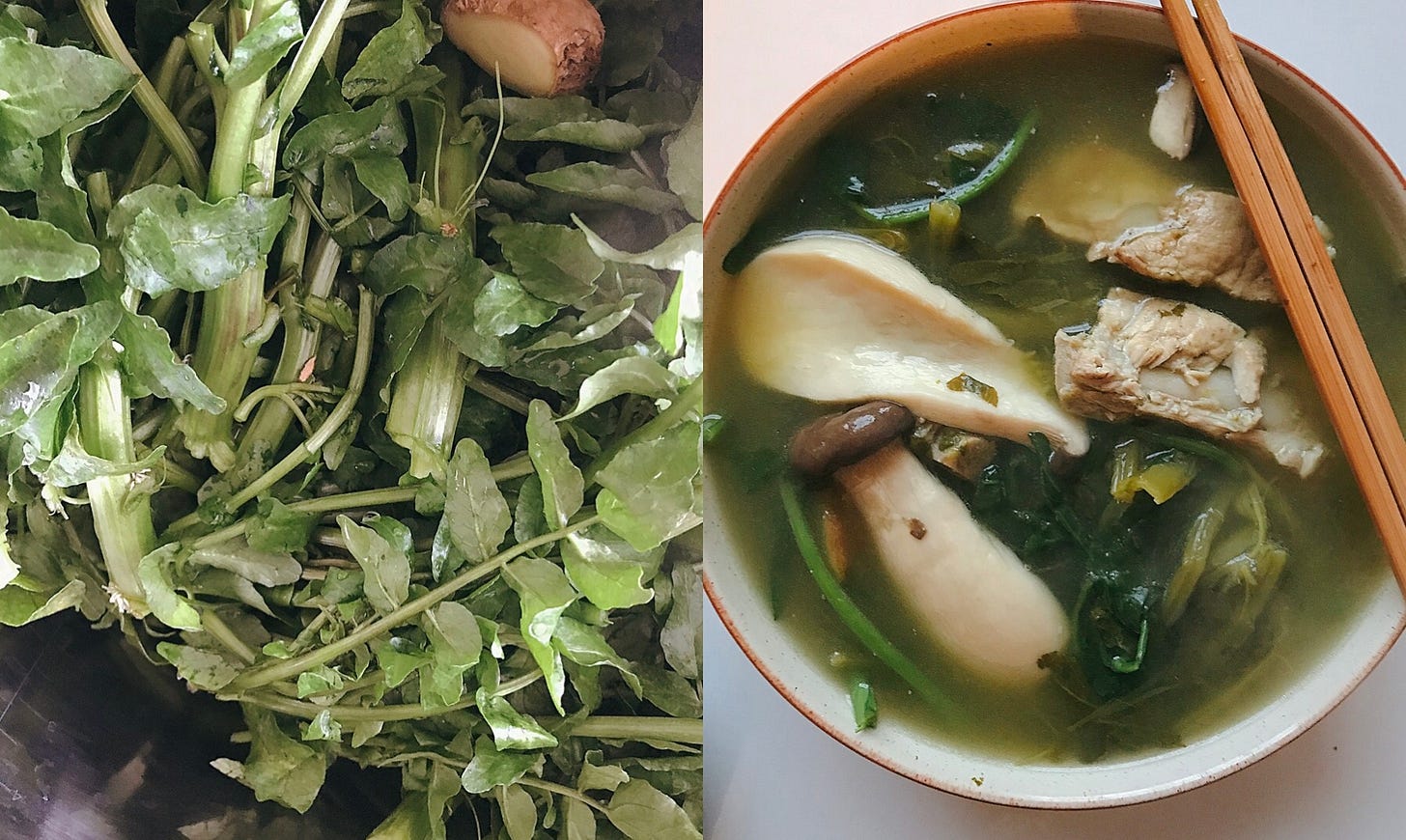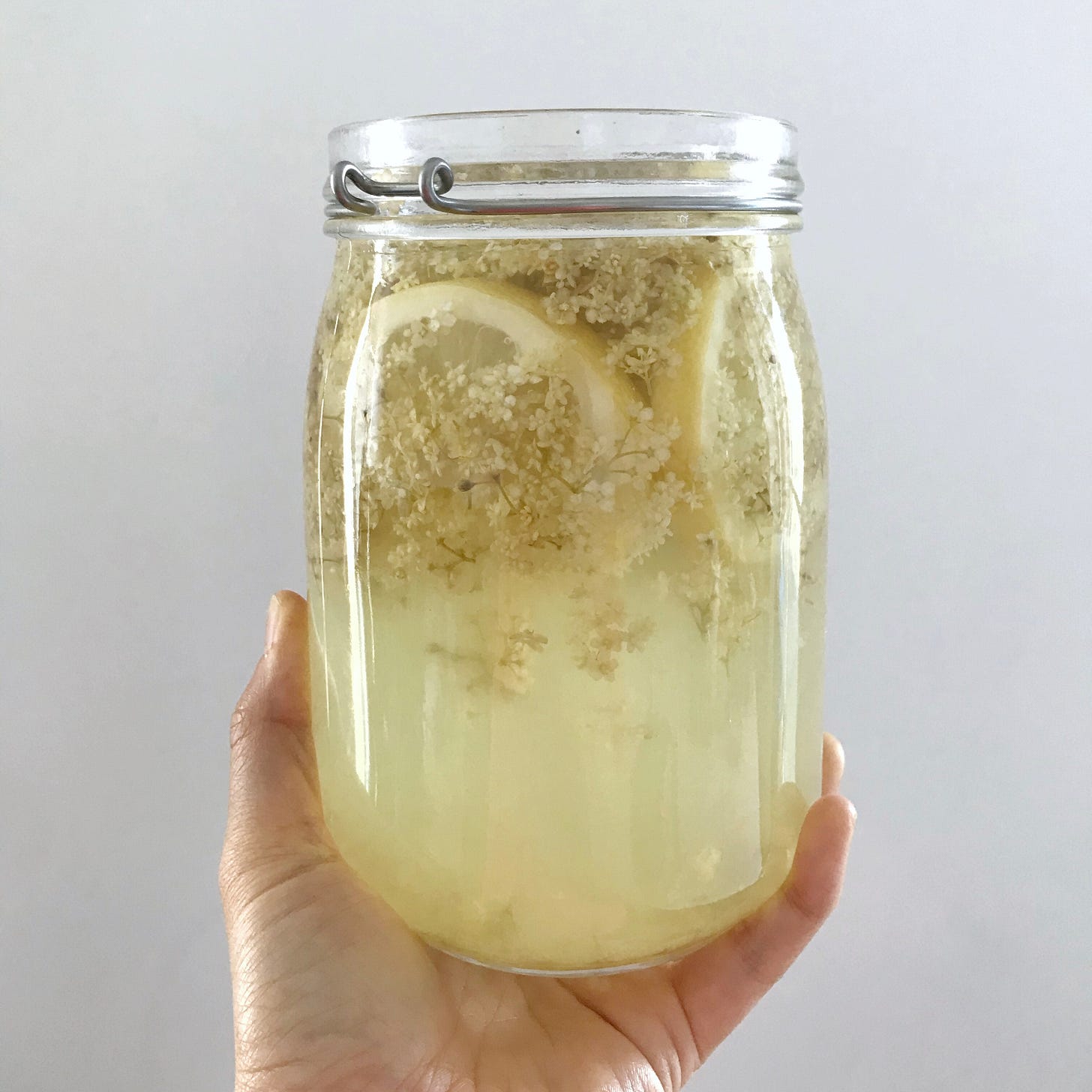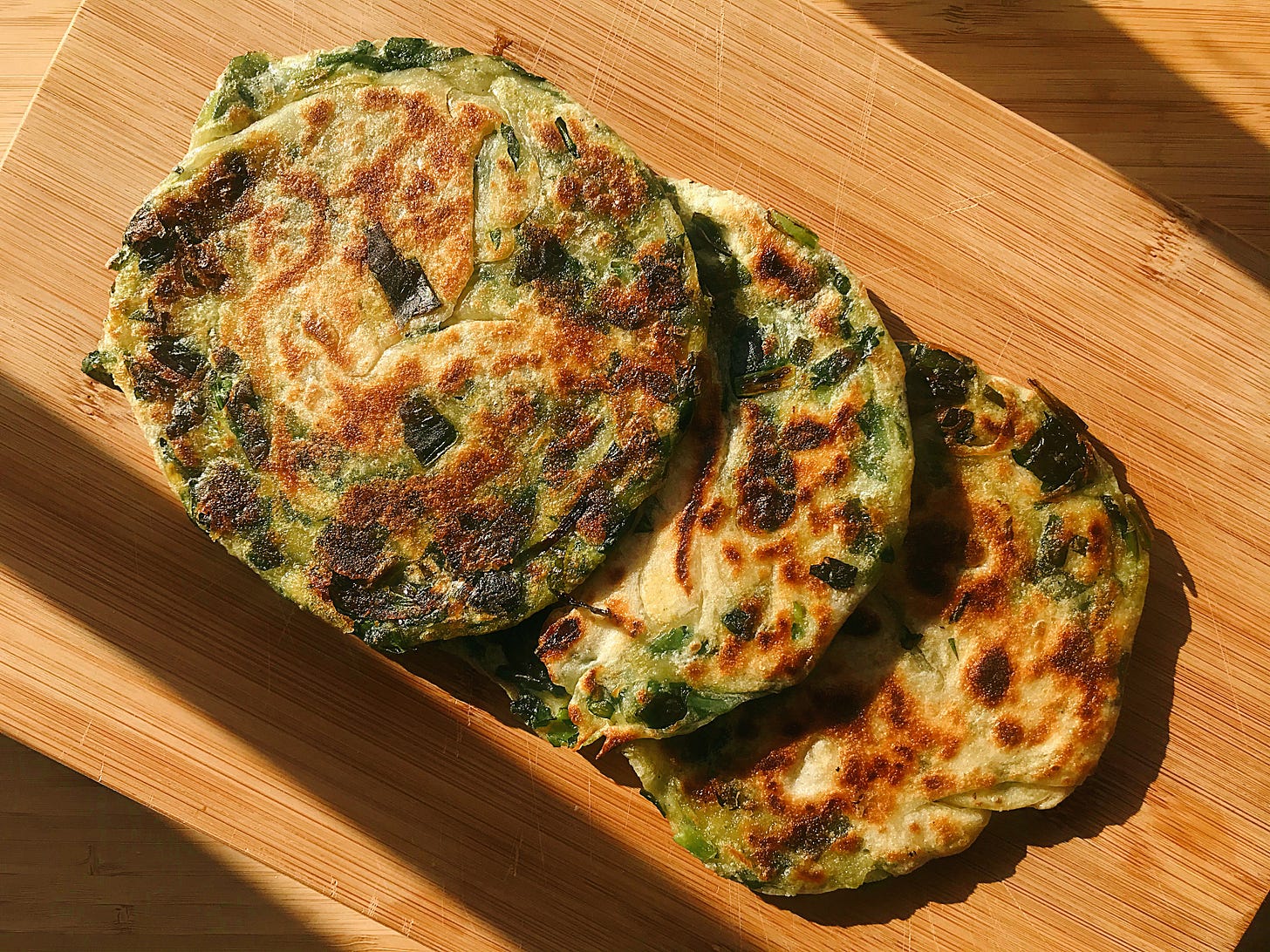An amateur's notes on (urban) foraging
in case you wondered how I got started + some practical tips on how you can start foraging too
Hi everyone! Hope you have all had a wonderful Easter break :)
This week’s post is about foraging. I have been picking it back up recently as the weather got warmer in London, and consequently some friends started asking me various questions about the subject so I decided to do a post for you all.
DISCLAIMER first though, I only ‘started’ a year ago, by no means am an expert on the subject. I will, however, share some notes/thoughts/resources which will hopefully pave the way for those who are interested but don’t really know how/where to start.
Things I will cover:
My own experience in foraging
Going on a guided walk
Cooking with wild food
Safety Tips and Useful Resources
If there is anything in particular that you would like to know but I haven’t covered, feel free to leave a comment on the post so other people can join in the discussion too :)
Let’s get started!
My Experience in Foraging
How did I start? Why do I like it? Random things I have learnt on the way…
Technically speaking, my interest in wild foods began when I was very young. I remember once in primary school I was walking down a mountain by the countryside with my grandpa, and he pointed out curly fiddleheads by side of the narrow road.
When he was young he would pick them early in the season, boil then simply stir fry them with a little salt, the final dish crispy, delicate, and refreshing. My stomach rumbled in reaction to his description. (As he grew old, news of fiddleheads being bad for health began to spread, so he stopped eating them.)
When I first moved to England, there used to be bushes of blackberries down the road leading to my local tennis courts. Every summer, after evening games of tennis, I would pick the ripest berries as I walked up the hill on my way home, the softest of them bursting between my fingers as soon as I touch them, dyeing my fingertips dark purple.
However, I didn’t really think much about the topic of wild food until this time last year, when I went for an evening stroll in Mudchute Park, as part of my daily lockdown exercise. As I was coming to the end of my lap around the park, I saw an old man gathering bunches of plants from the ground and stuffing them into large plastic bags.
After years of living with my grandparents, I knew that age meant wisdom, and old people immersed in road-side vegetation could only mean that something edible was on the cards. So I approached the man and asked him about the plants.

The vegetables he was collecting turned out to be stinging nettles. He was from central Europe and didn’t speak much English, but he showed me what to look for in identifying the plants.
On the following days, I began to realise that nettles are everywhere in the park. Yet I have never noticed them before, let alone to think that they could be edible.
How could I not have seen it? How do I know so little about the things I see everyday?
This realisation that I haven’t been paying enough attention struck me, so I decided to see what else could be edible in the parks around me that I may have overlooked.
After speaking to some friends about this, they suggested that I should look for elderflowers in the local parks to make some cordial.
In hindsight, this was an incredibly easy plant to find because of their abundance and distinctive scent. At the time however, I spent multiple days walking around parks then returned home empty-handed because despite reading 10+ articles online, it was difficult to translate theory into practice.
One day, again on an evening walk in a new local park, after a week of tirelessly looking at every single white-flowered-tree I pass every day, I FINALLY found a solo elderflower tree next to a children’s playground.
I cannot remember how many other plants I felt looked like elderflowers, but since then, suddenly, elderflower trees became so easy to distinguish. I also realised that I have walked past so many of them in my previous walks.
Since then, in my own little foraging walks in London, I have found and eaten wild cherries, apples, watercress, fennel, mustard greens. What I enjoy the most about foraging is the process of learning about the fruit or vegetables, and identifying the distinguishing features of each of the plants. It is also fascinating to see how wild fruits often differ from domesticated fruits in size and taste.
What I have learned in my own foraging stunts:
Trying to find a plant for the first time is hard — it’s important to be patient and sometimes it’s just down to luck
Once you have found one, it will ‘click’ — finding more is much easier
It’s super satisfying when you have found the right thing!
It’s helpful to read multiple guides on the same plant for multiple tips/perspectives
Keep an open mind about what is out there :)
Going on a Guided Walk
Another important learning experience I have had is a foraging walk I did with John the Poacher a couple weeks ago. I found him through Instagram, and booked immediately for a walk in the following week. (This is not an ad, I paid for the walk and took a day off work to attend).
It is difficult to describe all the details because he personalises the route to each person’s interest, but essentially we went on a 3hr+ walk around Hackney marshes. We looked for wild mushrooms and herbs that I could take home, and along the way John also introduced me to lots of trees and bushes which are not currently in-season but would produce fruits later in the year.


I had so much fun spotting and harvesting fresh wood ear mushrooms, three-cornered leeks, wild garlic — the whole experience made me realise how much more there is to learn about edible wild plants in London alone.
Most recently, with tips from John, I managed to find mugwort leaves to make qingtuan from scratch for Toomb Sweeping Festival a couple days back.

Cooking with Wild Food
I figured that I should share some tips on cooking wild food because it could be difficult to find recipes online that isn’t just making another sauce/herby pesto/dressing.
Firstly, please have a read online about how best to prepare the ingredient to make sure it is safe to eat. Lots of herbs are great raw, but nettles for example, must be cooked first as heat tames the sting. Some mushrooms must also be cooked thoroughly before consuming.
Then, I would cook it with minimal intervention — such as eating raw or blanching — in order to understand the flavour profile a bit more before using it with other ingredients.
Finally, get creative with the food! I often substitute them for similar ingredients in recipes I am reasonably familiar with, or simply add them to a salad or stir fry.

Notes and Tips on Safety (+ Resources)
Perhaps the most asked question I get is: how do you know it’s what you think it is and therefore is safe to eat?
Well, because the plant hasn’t got a supermarket label on it, I can never be 100% sure. Most of the time I am 99.999% sure, but it can be difficult when you are trying to identify new wild plants that you haven’t seen before or don’t know much about.
I always double check the features that are relatively well defined with available resources, which often includes:
appearance: the branches, leaves, flowers, and fruits/flesh
habitat: where you expect to find it vs. where you are finding it
smell and touch: does it smell/feel right?
Also, if you have an more experienced forager friend, send them pics and ask them :)
Ultimately, the decision comes down to yourself in weighing out the risk/reward of foraging. Personally, if at any point I feel uncertain about the plant/fungi, I don’t take the risk.
Finally, there are plenty of resources to get you started, for example:
IMPORTANT: Please follow foraging guidelines to keep it sustainable!
Shared maps of known foraging spots: Falling Fruit and Totally Wild UK
Some beginner’s guides: Galloway Wild Foods, Edible Wild Foods, Wild Food UK
Foraging books are also cool
You can always arrange a guided tour with someone experienced, a lot of the websites above have links to courses, if you are in London I really recommend John
Good luck and have fun! :)
Afterword
Thank you so much for reading! I found this post challenging to write because I am quite new to the area myself, but hopefully some of you will find it interesting/useful.
If you enjoyed this, please click the <3 to show your support, or drop me a comment!
If you do end up trying urban foraging or have been doing it recently, I would love to hear about it too!







This is a completely new world for me! So cool! Thanks for the good introduction to foraging :)
This is a completely new world for me! So cool! Thanks for the good introduction to foraging :)